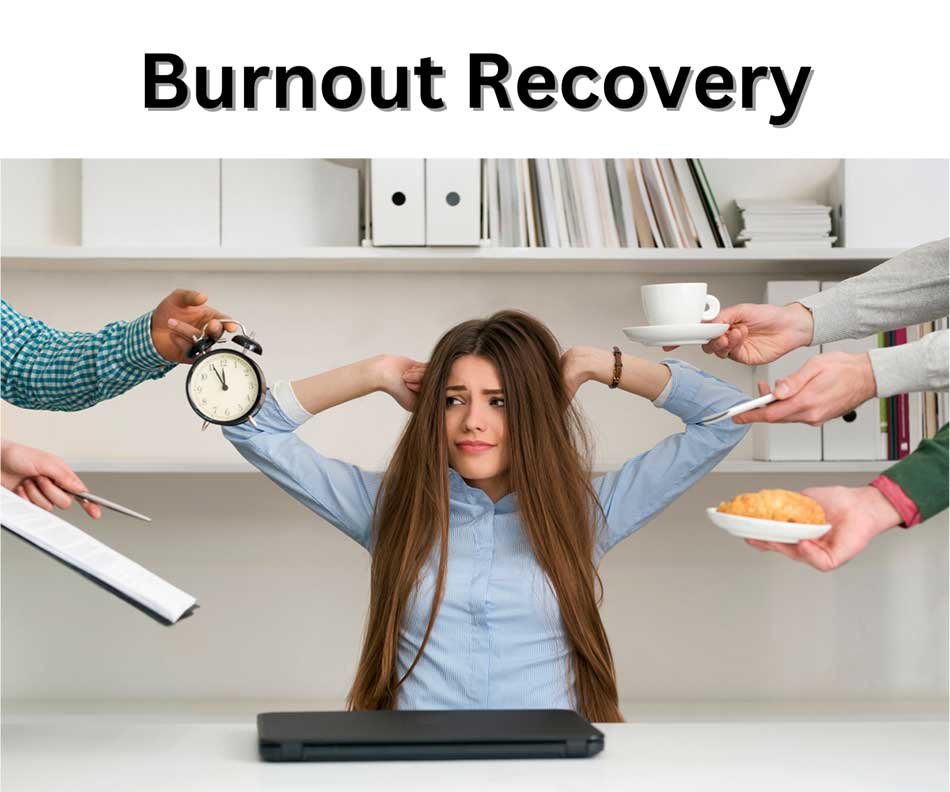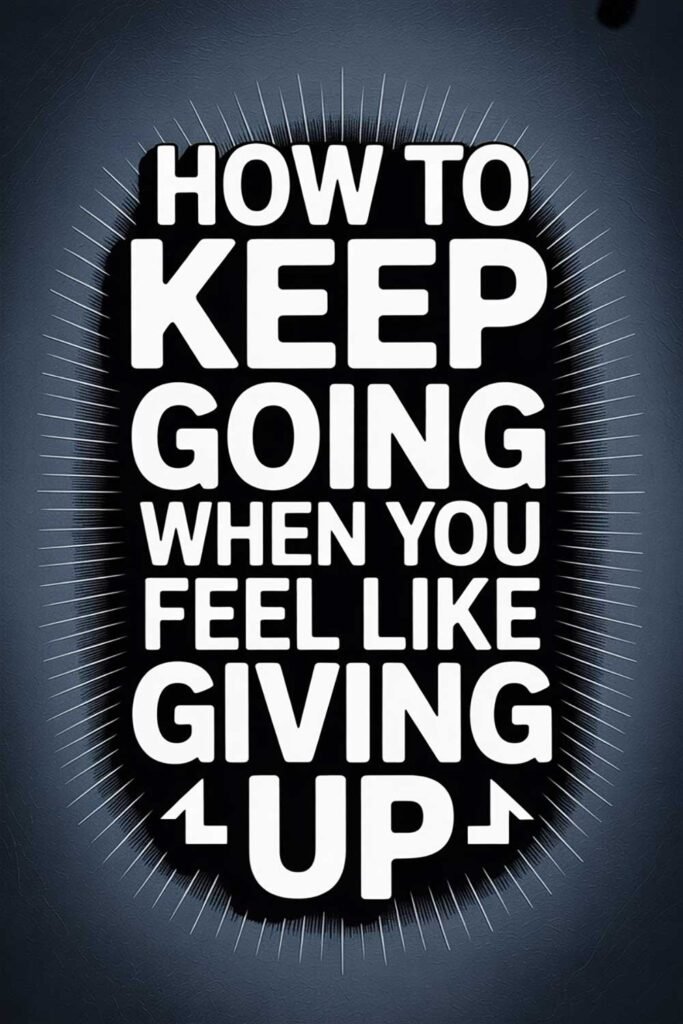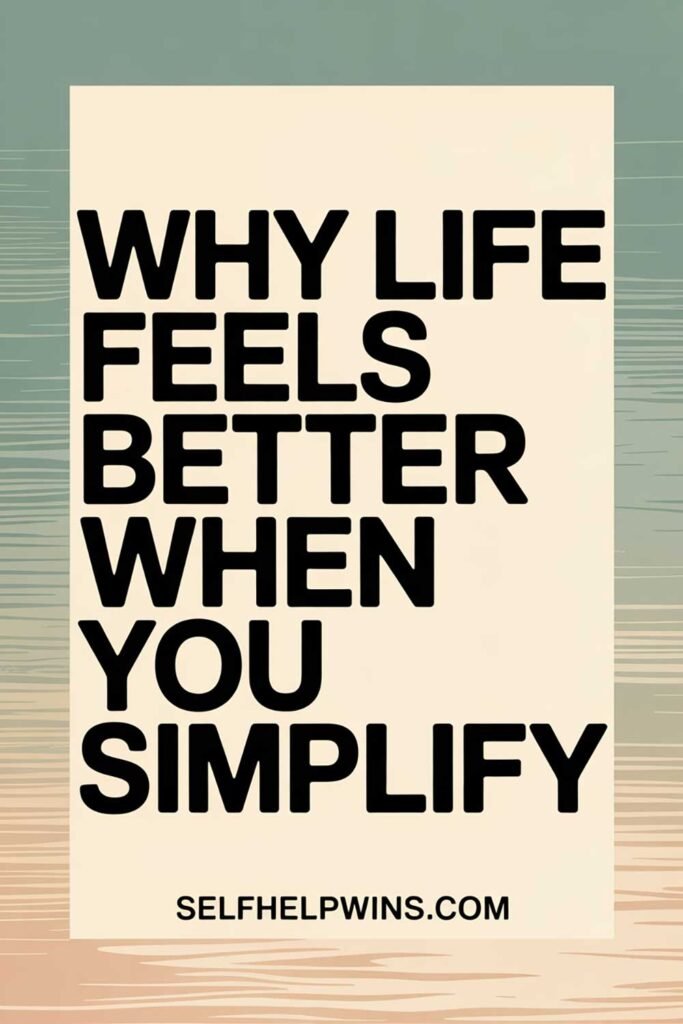
If you know someone who could benefit from this article, please share it with them. Burnout recovery is essential for restoring energy, focus, and balance in life.
Burnout Recovery: A Guide to Reclaiming Balance and Well-Being
What Is Burnout?
Burnout is a state of emotional, physical, and mental exhaustion caused by prolonged stress. It often stems from overwhelming work demands, lack of balance, or feeling unappreciated. Symptoms can include fatigue, irritability, reduced productivity, and a sense of detachment.

Signs of Burnout
- Emotional Exhaustion: Feeling drained and unable to cope.
- Cynicism or Detachment: Disinterest in work or personal responsibilities.
- Reduced Performance: Struggling to meet expectations despite putting in effort.
- Physical Symptoms: Headaches, sleep disturbances, or frequent illnesses.
- Difficulty Concentrating: Experiencing brain fog or forgetfulness.
Steps to Recover from Burnout
1. Acknowledge the Burnout
The first step is recognizing and accepting that you’re experiencing burnout.
- Action: Reflect on your symptoms and identify the sources of stress in your life.
- Tip: Be honest with yourself and others about your need for recovery.
2. Prioritize Rest and Recovery
Restoring energy is crucial for overcoming burnout.
- Suggestions:
- Take time off work or reduce your workload temporarily.
- Prioritize quality sleep by maintaining a consistent bedtime routine.
- Schedule regular breaks during the day to recharge.
3. Set Boundaries
Protect your time and energy by learning to say no to additional responsibilities.
- Tips:
- Limit after-hours work communications.
- Delegate tasks whenever possible.
- Establish boundaries around personal time to prevent overcommitment.
4. Reevaluate Your Priorities
Take a step back to assess what truly matters to you.
- Questions to Reflect On:
- What activities or tasks align with my values and goals?
- What can I let go of to create more balance in my life?
5. Seek Social Support
Connecting with others can provide emotional relief and perspective.
- Ideas:
- Talk to trusted friends or family members about how you’re feeling.
- Join a support group or seek help from a therapist.
- Engage in social activities that bring joy and relaxation.
6. Practice Self-Care
Incorporate habits that nurture your physical, emotional, and mental health.
- Suggestions:
- Engage in regular physical activity, such as walking or yoga.
- Eat a balanced diet rich in nutrients.
- Spend time on hobbies or creative outlets that make you happy.
7. Develop Stress-Management Techniques
Learning to manage stress can prevent burnout from recurring.
- Techniques:
- Practice mindfulness or meditation to stay grounded.
- Use breathing exercises to calm your mind during stressful moments.
- Break tasks into smaller, manageable steps to reduce overwhelm.
8. Redefine Success
Let go of perfectionism and set realistic expectations for yourself.
- Action: Focus on progress rather than perfection.
- Mantra: “I am enough, and my well-being comes first.”
9. Reconnect with Purpose
Finding meaning in your work or life can reignite motivation and passion.
- Tips:
- Reflect on why you started your job or chosen path.
- Volunteer or engage in activities that align with your values.
- Explore new interests or goals that inspire you.
When to Seek Professional Help
If burnout symptoms persist despite your efforts, consider reaching out to a mental health professional. Therapy or counseling can provide tailored strategies and support to aid recovery.
Preventing Future Burnout
- Maintain Balance: Schedule regular downtime and avoid overloading yourself.
- Practice Gratitude: Focus on positive aspects of your life to foster resilience.
- Monitor Stress Levels: Regularly check in with yourself to address early signs of burnout.
- Stay Connected: Build a strong support network of friends, family, and colleagues.
Picture This
Imagine waking up with energy and enthusiasm for the day ahead. By prioritizing recovery and building healthier habits, you regain balance, clarity, and a sense of purpose. Burnout becomes a thing of the past as you move forward with resilience and confidence. What small step will you take today to start your burnout recovery journey?





